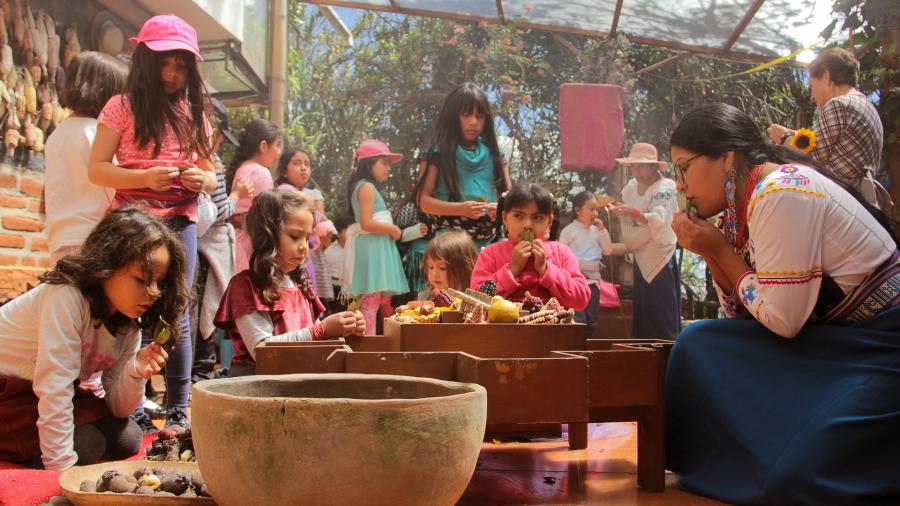In 1972 David and Pia Maybury-Lewis launched this organization dedicated to advancing the human rights of the world's 600 million indigenous people. At that time, few in the First World understood the plight of native groups, much less appreciated the broad forces that threatened their survival. Today, in part because of Cultural Survival, these issues rank higher on the agendas of policymakers, foundations, and international institutions. Indigenous voices will be heard at the upcoming UN Conference on the Environment and Development. The UN has dedicated 1993 as the Year of Indigenous Peoples. And the World Bank and US Agency for International Development have also developed guidelines more responsive to the rights of indigenous people.
Nevertheless, we have a long way to go. Of the 161 UN members, most restrict the right to self-determination of an indigenous people. In Malaysia's Sarawak region, where over a third of the rain forest has been razed in the last 30 years, only 450 Penan remain from an original population of 10,000. And indigenous lands are the site of nearly all nuclear tests; since 1963, the United States has exploded more than 650 nuclear weapons on Shoshone territory in Nevada.
The fare of indigenous peoples is also tied to the fate of the earth. How the world responds to their inherent right to participate in decisions affecting their lives is a litmus test, indeed an entry point, for redesigning international relations and moving toward common security. More than a decade ago, a commission chaired by the late Swedish Prime Minister Olaf Palme made just this point. The commission's report, "Common Security," highlighted the realities of Third World poverty, clearly stating that conflicts result from the unequal distribution of resources and the imbalances of power over them.
However, addressing the injustices - the roots of conflict - cited in "Common Security" had to wait for a hearing in the court of public opinion. The threat of nuclear war and East-West conflict dominated international relations. Claiming they were held hostage to the East-West standoff and the nuclear threat, world leaders deferred advancing human rights, protecting the environment, and promoting economic justice - at home and aboard.
Now, ten years after the Palme Commission challenged the world of more beyond the Cold War, the nuclear threat has diminished. With the collapse of communism, a new Europe - with the goal of a civil society - is in the making throughout the continent. That civil society is a model of common security, based on pluralism, the right of democratic participation in decision-making, and the wise use of limited resources for the common good. It is by no means clear that Europe and the Soviet Union will make the transition to this new order, much less that international relations will be transformed along these optimistic lines. But this is the vision, and without that the future is bleak indeed.
The long-standing conflicts between the North and the South - between the haves and the have-nots - and the persistent poverty of Third World peoples are inescapably part of the world's agenda. President Bush has joined the chorus of voices talking the language of common security largely because he has been forced for political reasons to describe in detail his own "new world order" in the aftermath of the bloody Gulf war. He may find that the public expects policies measuring up to his newly found voice of reason.
Creating a fresh global politics is underway. Common security means developing the institutions and mechanisms for responding to global economic and environmental interdependence, and moving toward common security requires that states, North and South, take genuine steps toward demilitarizing internal military security systems, and protecting the environment from costly conventional wars are all prerequisites for moving toward common security. Yet the difficult road to common security also means negotiating competing values, interests, and power in controlling and exploiting resources and finding technically feasible and socially responsible paths to development.
This has been the message of Cultural Survival, which for 20 years has insisted that the agendas of human rights, the environment, and development are interlocked. Indigenous people are both the guardians of some of the earth's last wild places and among its most politically powerless and poorest inhabitants. They live in the world's last frontiers. Industrialization and mindless development have not completely devastated their lands, marine riches, and other resources - yet.
The fight for the survival of indigenous cultures is also a fight for our souls. No individual, no group of people, is expendable. Cultural Survival's work has always been rooted in the juncture between this moral imperative and practical strategies in the field.
Ghandi was once asked by reporters what he thought of Western civilization. "I think it would be a good idea," he responded. The knowledge systems of indigenous peoples alone will not solve complex problems, but a collaboration with them as partners is essential in managing the global commons and ensuring the survival of us all.
Article copyright Cultural Survival, Inc.



